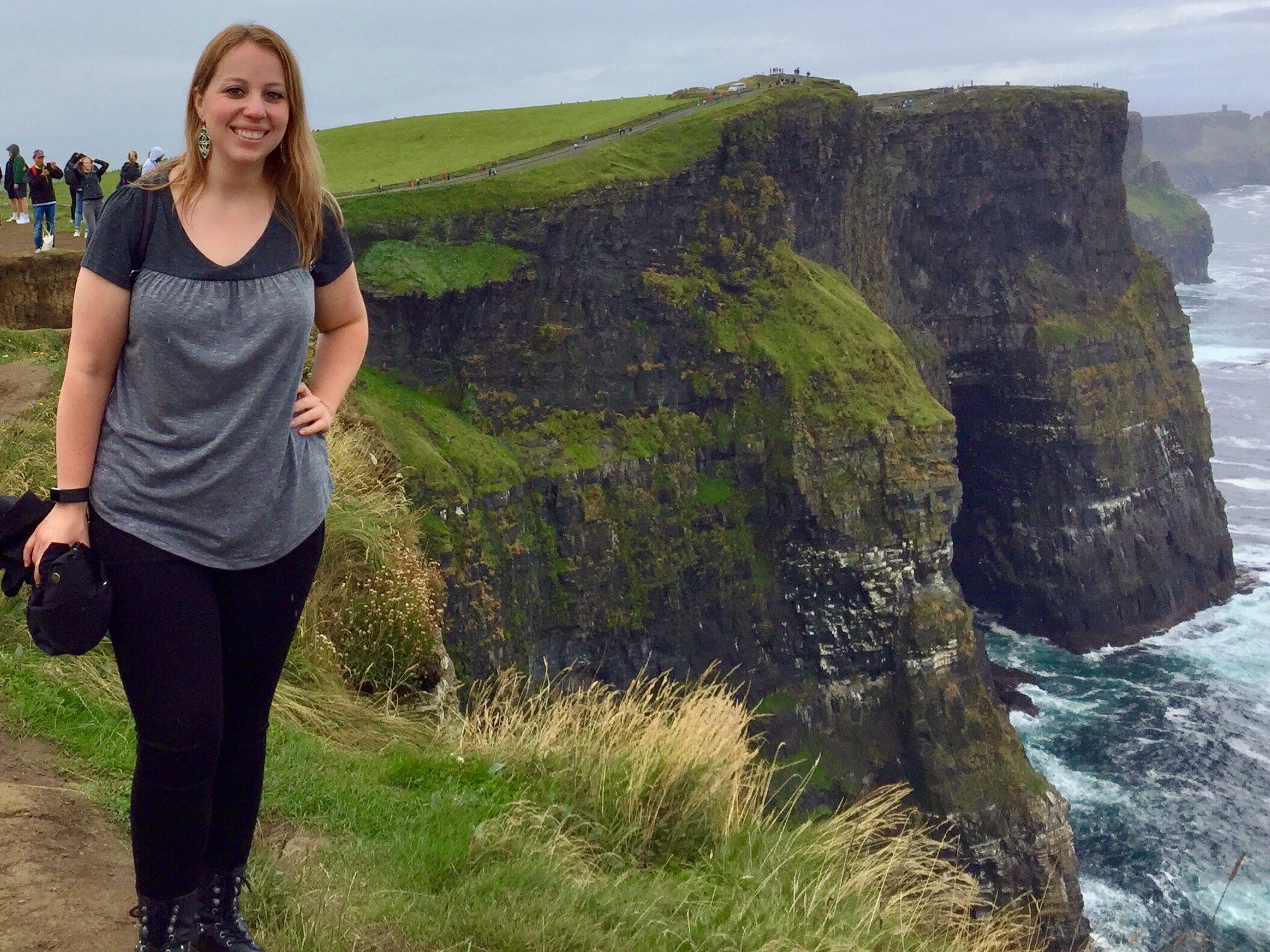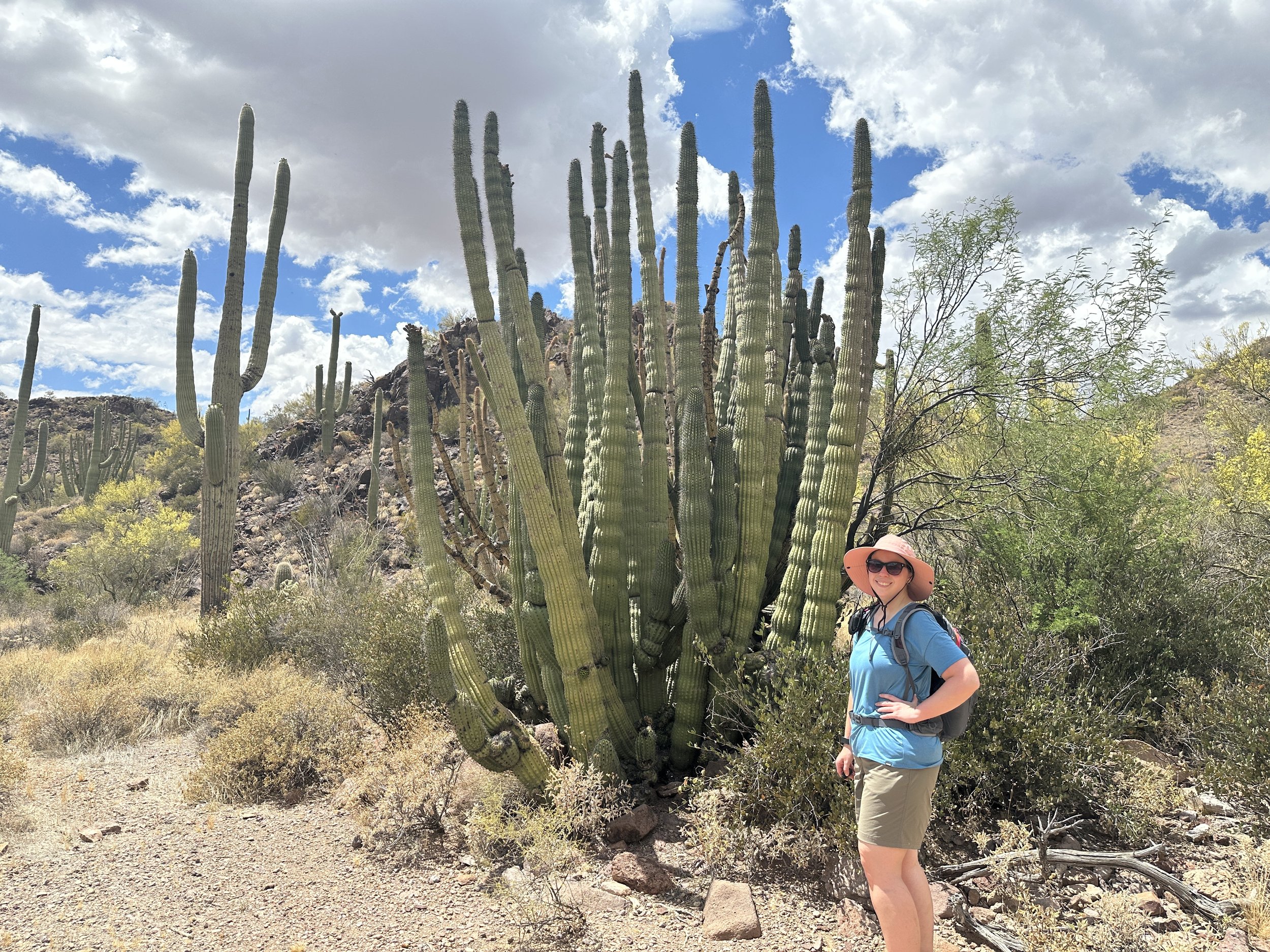The Mental Health Benefits of Solo Travel
Solo traveling at the Cliffs of Moher in Ireland
The first time I traveled solo was in 2018 to Ireland. I registered to attend a counseling conference in Dublin and quickly decided to go a day early so I could explore a bit. Might as well take advantage of a plane ticket overseas, right? Before I knew it, I had made plans to arrive six full days ahead of the conference as I kept finding more and more that I wanted to see and do while I had the chance. This was the start of a new kind of adventure for me.
Solo travel can be a bit of a controversial topic, especially solo travel for women. Some people find it empowering and brave, while others label it as irresponsible and scary. For me, solo travel has represented freedom, flexibility, growth, and reflection. In both my personal and professional experience, there can be significant mental health value in taking solo trips.
Four Benefits of Solo Travel
Increased confidence, independence, and resiliency. When you’re traveling solo, all decisions are up to you. You choose your destination, transportation, hotels, tours, food. And it’s also up to you to problem-solve any mishaps, which can sometimes be unavoidable when you’re in new territory away from home. Getting lost, locking your keys in your car, leaving your wallet somewhere, losing your luggage, or even facing dangerous situations - these are just a few common travel issues. Successfully navigating a trip, the decisions that are a part of it, and the inevitable challenges that come with it will likely increase your confidence, independence, and resiliency in all areas of your life which can help you be more prepared to face life’s stressors.
Decreased anxiety. The development of the decision-making skills and problem-solving skills that help boost confidence can also help decrease anxiety. When a person is feeling empowered and confident, they may be more likely to experience less anxiety, and better manage the anxiety and stress they do face. Additionally, solo traveling can help a person better recognize, appreciate, and utilize their strengths, which can also help reduce anxious symptoms.
Self-discovery. What do you like when you don’t have to accommodate anyone else? Who are you when you can be a little selfish without guilt? Where do your thoughts go when you have more time in solitude? How do you handle unexpected challenges? Solo travel allows you to build a better relationship with yourself, confront your fears, and reflect on your past, present, and future, all of which can help you live a more authentic and satisfying life.
Meeting new people. It may seem counterintuitive but solo travel often encourages interactions with new people. When people travel in groups, they tend to stick with those who are familiar, while traveling alone can make it easier to talk to strangers. Personally, when I’m traveling in a group, if one of my travel buddies strikes up a conversation with a stranger, as an introvert I tend to let them take over and I naturally fade to the background. When I’m alone, I’m much more likely to participate in conversations and even start conversations with those around me. This gives me the opportunity to meet interesting and diverse people, and can allow for increased cultural understanding and empathy, as well as meaningful connections.
While solo travel can be life-changing, it may not be for everyone. If you’re new to solo travel, you might want to start slow by planning a short trip that isn’t far from home.
Fast Safety Tips for Solo Travel
Make a plan and do your research. Develop an orientation of the area, make choices about transportation before arriving, and learn about potential risky places to avoid.
Give a trusted person a copy of your itinerary and keep them updated throughout the trip of any changes. Let them know when they can expect to hear from you on a regular basis, so in case something goes wrong, they can know to alert the appropriate authorities.
Don’t tell strangers too much information about your plans, such as where you’re staying or where you’ll be at specific times.
Trust your instincts and know your limits.
If you’re going to be somewhere without cell service, such as national parks or other remote areas, consider getting a satellite communication device which can allow you to call for emergency help if needed or even stay in contact with family and friends.
Now that I provide counseling remotely via Telehealth, I have more opportunities than ever to travel and I’m taking advantage of every opportunity I can, with a variety of solo trips and trips with family and friends. My intention for each trip, whether solo or group, is to boost my mental health to the fullest extent, allowing me to reenergize for my work and my personal life. I hope that your travels can bring you the same rewards.
Related Articles: How to Enjoy Group Travel as an Introvert Without Burning Out
Coping with Flying Anxiety: How to Stay Calm in the Sky
Traveling with Anxiety: Practical Tips for a Stress-Free Trip
Nurtured by Nature: How to Boost Your Mental Health with the Great Outdoors
At the remote Organ Pipe Cactus National Monument in Ajo, Arizona near the border of Mexico




